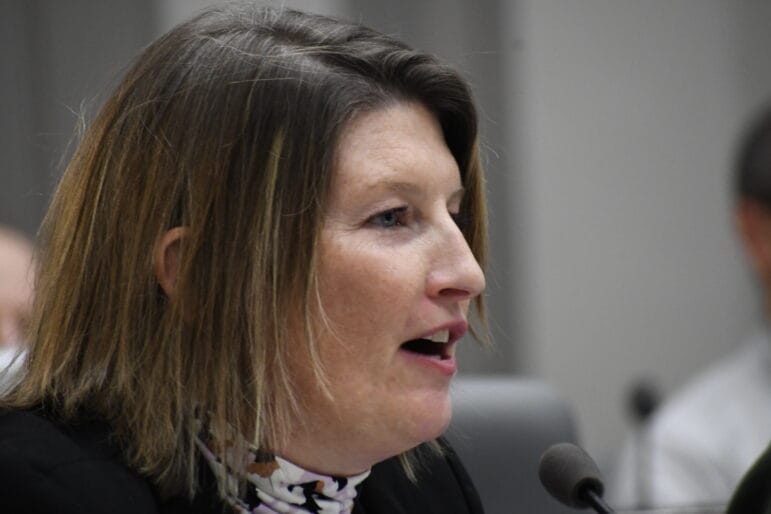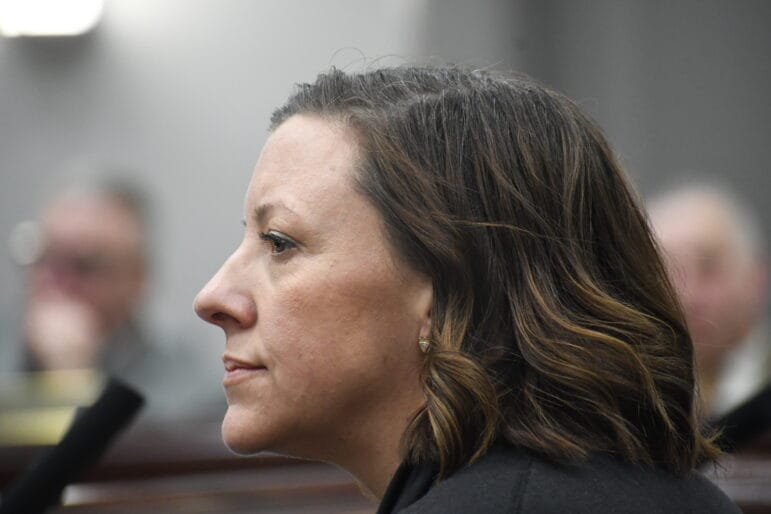Aldermen approve homeless detox concept
On Tuesday night, the Board of Mayor and Aldermen Special Committee on Alcohol, Other Drugs and Youth Services heard additional information a pending proposal from Gatehouse Treatment to help the provide members of the city’s homeless population seeking detox services from opioid and other forms of

MANCHESTER, N.H. – On Tuesday night, the Board of Mayor and Aldermen Special Committee on Alcohol, Other Drugs and Youth Services heard additional information a pending proposal from Gatehouse Treatment to help provide members of the city’s homeless population seeking detox services from opioid and other forms of drug and alcohol abuse, followed by its approval by the full board later in the evening.
The proposal is spearheaded by Amanda Robichaud, the Director of Northeast Development for Gatehouse, following earlier testimony from Robichaud where she said she could help address the situation.
In the plan, Gatehouse would be paid $300,000 to help 30 homeless individuals in Manchester suffering from opioid abuse. After questioning from Alderman At-Large Joseph Kelly Levasseur, it was indicated that the money would not paid up front, but rather after the program is deemed to be successful, something Levasseur felt was a reasonable adjustment.
Ward 12 Alderman Erin George-Kelly expressed concern with Robichaud’s connection to the city’s non-profit groups already helping the city’s homeless population. George-Kelly, who is employed as director of homeless youth services for Waypoint, said she has seen Robichaud recently in local non-profit circles, but had not seen her before that point. Robichaud responded that she has been active in Manchester since 2020, particularly doing street outreach, has extensive experience on the issue and works seven days a week, but also does not try to force individuals into treatment.

There were also concerns from members of the committee regarding Robichaud’s proposal and how it would connect with ongoing efforts by Manchester Director of Homeless Initiatives Adrienne Beloin and Manchester Health Department Director of Overdose Prevention Andrew Warner.
Robichaud pledged to work with Beloin, although she refused to significantly modify the plan she has presented to the city, stating a significant amount of work that went into its creation. Beloin said that while she is delighted to see the initiative, work needs to be done to manage expectations from the project as well as data-based goals and funding mechanisms.
The committee recommended the proposal on a 4-1 vote, with George-Kelly voting in opposition.
Before the recommendation could come before the full board, Farnum Center Executive Vice President Annette Escalante spoke during public comment of the committee meeting vote, stating that beds were available at the Farnum Center just down the street for the same purpose that Robichaud was offering in Massachusetts.
This revelation surprised some members of the board such as Ward 5 Alderman Anthony Sapienza, who directly asked Beloin and Warner how this could be the case when the city had been given the impression by non-profit groups that no beds were available for the city’s homeless population.
Beloin and Warner indicated that the switch came primarily from a very recent increase to Medicaid reimbursement amounts which now open up beds at other facilities that had only been accessible before to those with private insurance, creating a sudden ripple effect that has not yet fully been quantified.

Levasseur expressed frustration with just learning this, as well as what he views as the state’s inadequate response to assist those in need through their 211 system and concerns that approving Robichaud’s program would act as a magnet to other homeless individuals across the state that could not obtain similar services in their communities.
Warner said with the increase in Medicaid reimbursement beds for treatment and recovery should be opening up around the state.
Board members expressed overall support for moving forward with Robichaud’s approach, combined with potentially reaching out to the Farnum Center where applicable if beds are available under the oversight of Beloin.
Ward 10 Alderman Bill Barry echoed the sentiments behind the core of the Safe Station approach to tackling drug addiction, stating that it was essential to make sure that those seeking to detox can get access to it whenever they are ready, necessitating the need for options.
Ward 3 Alderman Pat Long also praised the efforts of Beloin and Warner, but said that Robichaud’s approach had given new energy to the city’s efforts.
“This discussion has been brought to you by Gatehouse,” he said.
Manchester Mayor Joyce Craig reiterated a need that while the city could potentially pay up-front costs for the program, state funding would be critical in the program’s overall success.
The board approved Robichaud’s proposal in a voice vote, with details of the agreement between Robichaud and the city pending review from City Solicitor Emily Rice.




